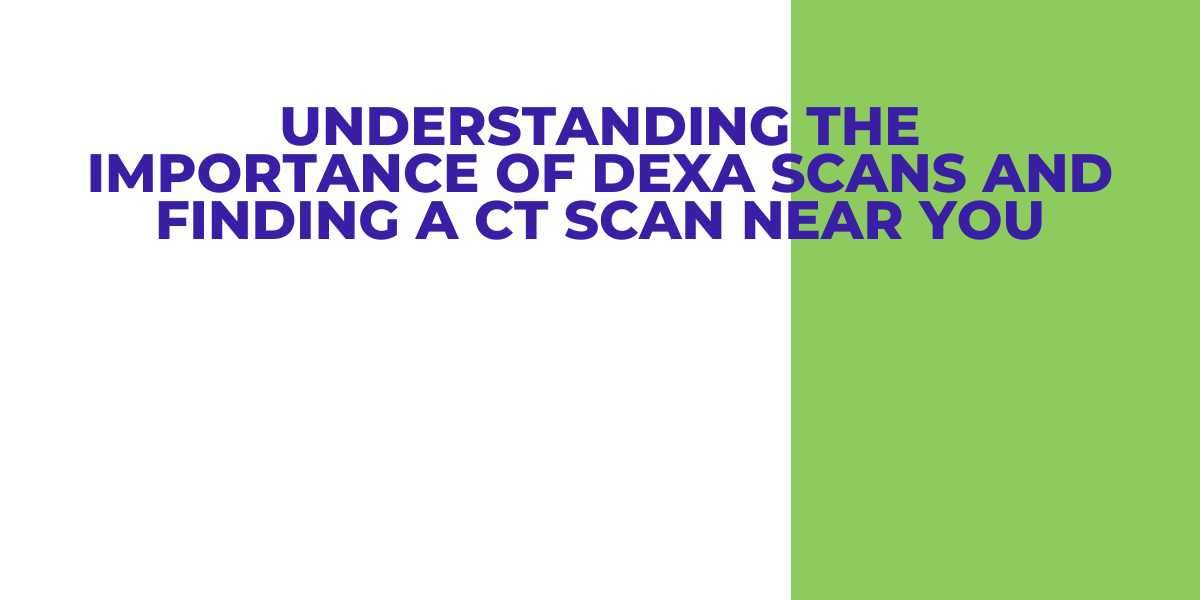In the realm of medical diagnostics, technology has significantly advanced, allowing for more precise and comprehensive insights into various health conditions. Two key diagnostic tools that play a crucial role are DEXA scan and CT scans. Understanding what these scans entail and knowing where to find them can greatly enhance your healthcare experience.
What is a DEXA Scan?
A Dual-Energy X-ray Absorptiometry (DEXA) scan is a specialized form of X-ray technology used primarily to measure bone density. This scan is instrumental in diagnosing conditions like osteoporosis and assessing the risk of fractures. It can also be used to measure body composition, including the percentages of fat and lean muscle mass.
The procedure is straightforward and non-invasive. During a DEXA scan, you will lie on a table while a machine passes over your body, emitting low levels of X-ray energy. The scan usually focuses on areas prone to fractures, such as the hips, spine, and sometimes the forearm. The entire process is quick, typically taking about 10 to 20 minutes, and involves minimal radiation exposure.
Why is a DEXA Scan Important?
- Early Detection of Osteoporosis: Osteoporosis is often called a "silent disease" because it progresses without symptoms until a fracture occurs. A DEXA scan can detect low bone density early, allowing for timely intervention.
- Monitoring Bone Health: For individuals diagnosed with osteoporosis or other bone-related conditions, regular DEXA scans help monitor the effectiveness of treatments.
- Assessing Body Composition: Beyond bone health, DEXA scans provide detailed body composition analysis, which can be beneficial for athletes or individuals undergoing weight management programs.
Finding a CT Scan Near You
A Computed Tomography (CT) scan is another vital diagnostic tool that uses X-ray technology to create detailed cross-sectional images of the body. Unlike regular X-rays, which provide a flat image, CT scans offer a more comprehensive view, making them essential for diagnosing various conditions, from internal injuries and tumors to infections and vascular diseases.
If you need to find a "CT scan near me," consider the following steps:
- Consult Your Healthcare Provider: Your doctor can refer you to a reliable imaging center and may even schedule the appointment for you.
- Insurance Provider Directory: Check your insurance provider's directory of approved imaging centers to ensure coverage and avoid unexpected costs.
- Online Search: A quick online search for "CT scan near me" can provide a list of nearby facilities. Look for reviews and ratings to choose a reputable center.
- Local Hospitals and Clinics: Many hospitals and clinics have in-house imaging centers. Contact them directly to inquire about CT scan services.
Importance of CT Scans
- Detailed Diagnosis: CT scans provide more detailed images compared to regular X-rays, helping in the accurate diagnosis of various conditions.
- Guidance for Treatments: These scans guide many treatments and procedures, such as biopsies and surgeries, ensuring precision.
- Monitoring Disease Progression: For chronic conditions, CT scans help monitor disease progression and response to treatments.
Conclusion
Both DEXA scans and CT scans are integral components of modern diagnostic medicine. While DEXA scans are paramount for bone health assessment and body composition analysis, CT scans provide comprehensive images for a wide range of diagnostic needs. Knowing where to find these services and understanding their importance can greatly enhance your healthcare management, ensuring timely and accurate diagnoses and treatments. Always consult with your healthcare provider to determine the best diagnostic approach for your specific health needs.



